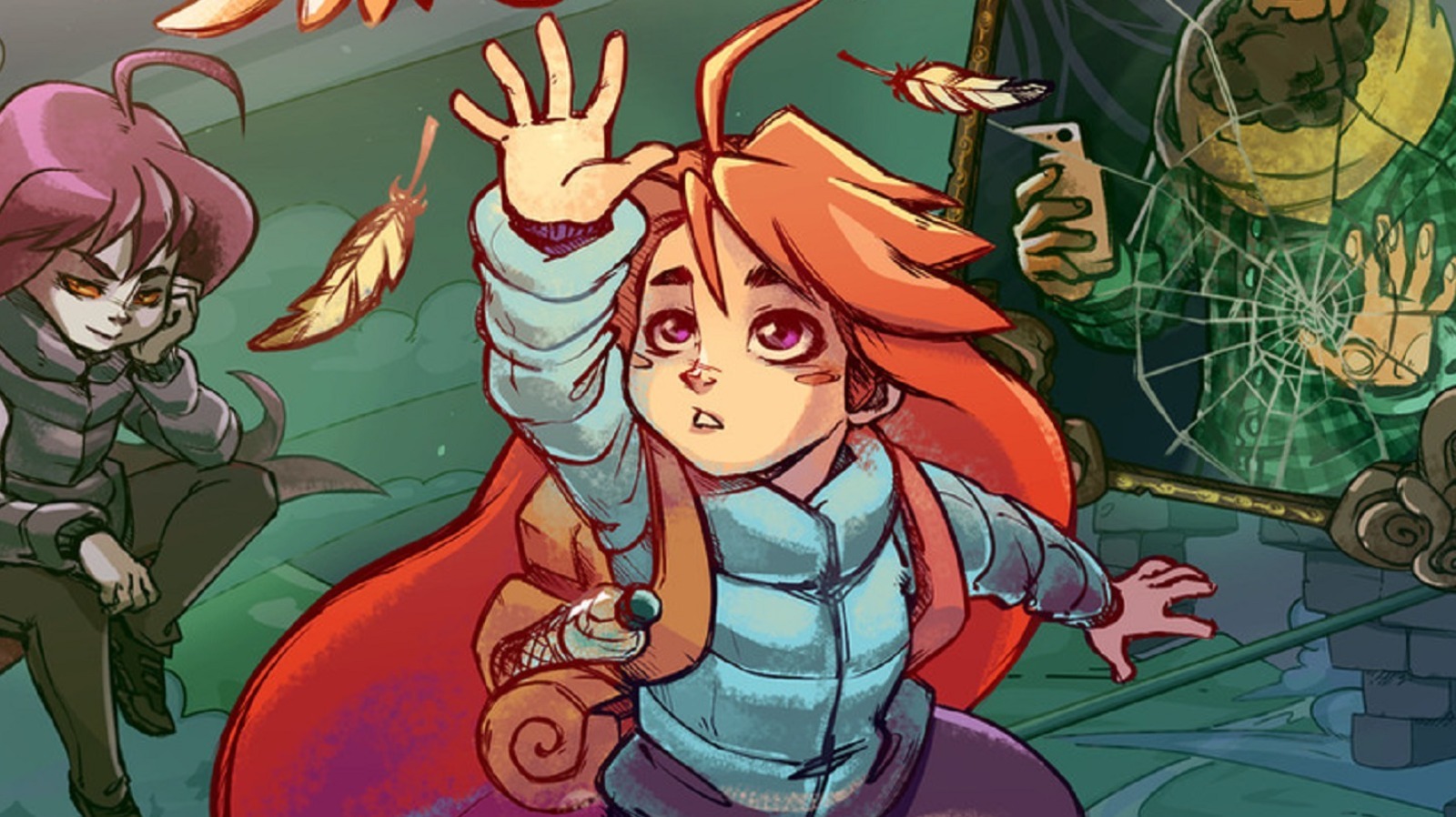Indie Games On Nintendo Switch: A Legacy Of Collaboration And Conflict

Table of Contents
The Switch's Appeal to Indie Developers
The Nintendo Switch's success as a platform for indie games stems from several key factors. Its hybrid nature, bridging the gap between home consoles and handheld devices, has proven incredibly appealing to both developers and players.
H3: Portability and Accessibility:
The Switch's portability offers indie developers an unparalleled advantage. It lowers the barrier to entry compared to other platforms, allowing for a wider reach and greater potential for exposure. This accessibility is amplified by the platform's strong global sales figures and the relative ease of marketing through the eShop.
- Lower barrier to entry: The process of getting an indie game onto the Switch eShop is often considered more straightforward than other major platforms.
- Strong global sales: The Switch's massive user base translates into a substantial potential player pool for indie games.
- Ease of marketing via eShop: The eShop provides a relatively easy-to-navigate storefront, making it simpler for indie titles to gain visibility.
Several successful indie titles, like Stardew Valley and Undertale, have demonstrated the power of the Switch's portability in reaching a massive audience. Their ability to be played anywhere contributed significantly to their widespread appeal and massive sales.
H3: Nintendo's Support for Indies:
Nintendo has actively cultivated a supportive environment for indie developers. Through initiatives like the Indie World showcases and the provision of robust development tools, they've significantly contributed to the platform's flourishing indie scene.
- Indie World showcases: These regular showcases provide valuable exposure to a wide audience, catapulting lesser-known games into the spotlight.
- Development tools and resources: Nintendo offers developers comprehensive documentation and tools, making the development process smoother and more efficient.
- Community support programs: Various programs facilitate connections between developers, fostering a sense of community and collaboration.
While Nintendo's curated approach offers benefits like quality control and marketing support, it also presents limitations, including a more rigorous submission process compared to other platforms. Despite this, the overall support has been a crucial factor in the success of many indie games on the Switch.
Collaboration and Community within the Indie Scene
The indie game development community on the Switch is characterized by a remarkable level of collaboration and mutual support.
H3: Shared Resources and Knowledge:
Indie developers frequently collaborate, sharing resources, knowledge, and experiences. This collaborative spirit is fostered through various channels:
- Online forums and communities: Platforms like Reddit and Discord provide spaces for developers to connect, share tips, and troubleshoot problems.
- Game jams: These events encourage collaborative development, leading to rapid prototyping and innovative game ideas.
- Social media: Platforms like Twitter and Twitch facilitate networking and the sharing of best practices.
Several successful Switch indie games are the result of such collaborations, demonstrating the power of collective knowledge and mutual assistance.
H3: Cross-Promotion and Mutual Support:
Indie developers frequently support each other through various cross-promotion strategies, bolstering their collective visibility and success:
- Social media campaigns: Developers often promote each other's games on their social media channels.
- Bundled sales: Collaborations often lead to bundled sales, where multiple indie titles are offered at a discounted price.
- Influencer marketing collaborations: Indie developers leverage the reach of gaming influencers to promote their games.
This collaborative ecosystem fosters a sense of community and shared success, setting the indie Switch scene apart.
Challenges and Conflicts in the Indie Switch Market
Despite its considerable advantages, the Switch's indie game market also presents substantial challenges.
H3: Saturation and Competition:
The sheer number of indie games released on the eShop creates intense competition. Standing out requires strategic planning and execution:
- Unique gameplay mechanics: Offering innovative and engaging gameplay is crucial for attracting players in a crowded market.
- Effective marketing strategies: Reaching the target audience requires a well-defined marketing plan, utilizing social media and other channels.
- Positive reviews and word-of-mouth: Building a strong reputation through positive reviews and word-of-mouth marketing is vital for long-term success.
H3: Balancing Creativity with Commercial Success:
Indie developers face the constant challenge of balancing their artistic vision with the financial realities of game development:
- Monetization strategies: Choosing the right pricing model and in-app purchase strategy is critical for generating revenue.
- Marketing budgets: Limited resources often mean indie developers have to be creative and resourceful in their marketing efforts.
- Impact of pricing models: Pricing too high can limit sales, while pricing too low can impact profitability.
H3: Dealing with Nintendo's Policies and Guidelines:
Navigating Nintendo's policies and guidelines is another hurdle for indie developers:
- Submission process: The submission process can be rigorous, requiring careful attention to detail and adherence to specific guidelines.
- Content restrictions: Certain content may be restricted, requiring developers to adapt their games accordingly.
- Revenue sharing models: Understanding and managing the revenue sharing model with Nintendo is essential for maximizing profitability.
Conclusion
The world of indie games on Nintendo Switch presents a compelling narrative of collaboration and conflict. The Switch's portability and Nintendo's support have attracted a thriving community of developers, fostering collaborations and mutual support. However, the growing saturation and the need to balance creativity with commercial success present significant challenges. This dual legacy – a vibrant community built on shared success and fierce competition – defines the indie experience on the Switch. Dive into the vibrant world of indie games on Nintendo Switch today and discover your next favorite game! Discover amazing indie titles on the Switch and support indie game development on the Nintendo Switch.

Featured Posts
-
 Tuerker Inanoglu Nu Kaybeden Guelsen Bubikoglu Nun Duygusal Anilari
May 31, 2025
Tuerker Inanoglu Nu Kaybeden Guelsen Bubikoglu Nun Duygusal Anilari
May 31, 2025 -
 Dragon Den Entrepreneur Reports 40 Profit Surge
May 31, 2025
Dragon Den Entrepreneur Reports 40 Profit Surge
May 31, 2025 -
 8 Crepes Salados Opciones Para Una Merienda O Cena Exquisita
May 31, 2025
8 Crepes Salados Opciones Para Una Merienda O Cena Exquisita
May 31, 2025 -
 Alcaraz Reaches First Monte Carlo Masters Final
May 31, 2025
Alcaraz Reaches First Monte Carlo Masters Final
May 31, 2025 -
 Covid 19 Update India Sees Mild Rise In Cases Amid Global Xbb 1 16 Variant Surge
May 31, 2025
Covid 19 Update India Sees Mild Rise In Cases Amid Global Xbb 1 16 Variant Surge
May 31, 2025
